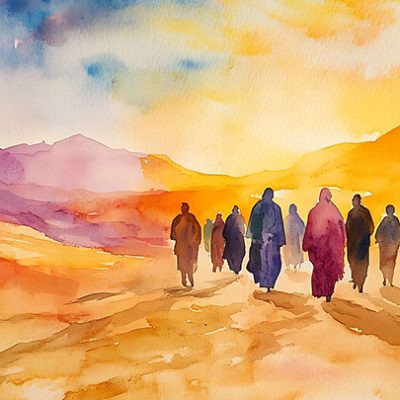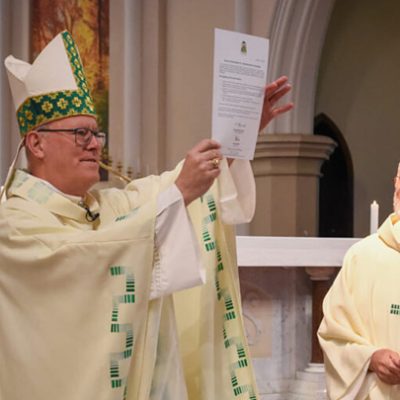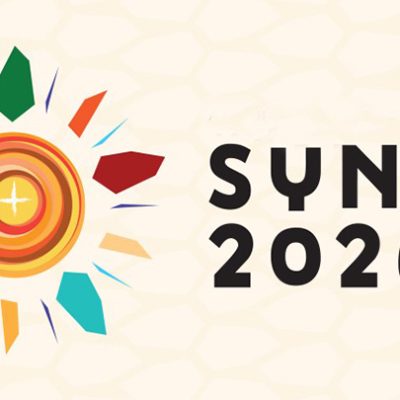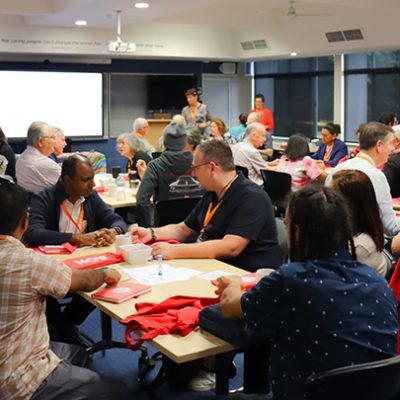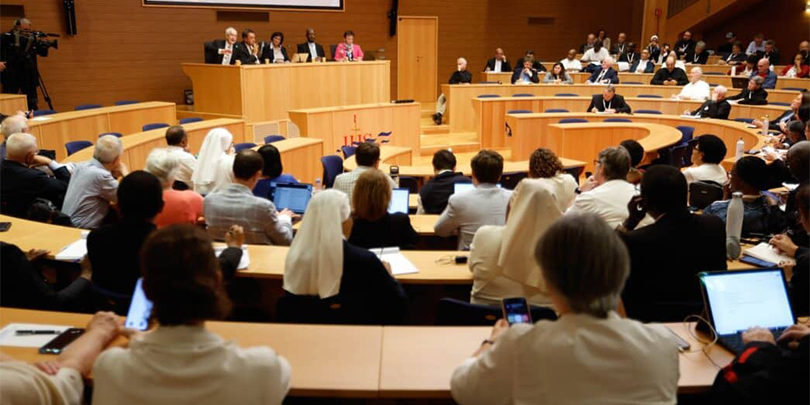
The Pope, bishops and priests cannot fully awaken the missionary spirit of the Catholic Church alone, so all Catholics must play a more central role in spreading the Gospel, according to participants in the Synod on Synodality. Source: OSV News.
In today’s Church, where “theological competence is not only a privilege of priests and bishops” and where the lay faithful “demand participation and transparency,” synodality must empower all Catholics to actively participate in the Church’s mission, said Thomas Söding, a theology professor at Ruhr University Bochum in Germany and a theological expert at the Synod.
Speaking at a theological and pastoral forum in Rome organised by the General Secretariat of the Synod, Professor Söding said that the model of the people of God as active participants in the Church’s mission is rooted in the New Testament.
In early Christianity, the apostles only stayed in towns and villages briefly to establish a community of believers and left once the communities were “equipped to live their faith”, he said.
The responsibility for growing that community of believers then fell to the people of God, Professor Söding said. “Mission through attraction, that is the key.”
In the apostolic era, “we see the slow emergence of a canon of writings that interpret Jesus, that interpret the Gospel in diverse ways, but in ways that all the churches sense are in fidelity to the truth of Jesus Christ,” said Fr Ormond Rush, a professor at Australian Catholic University and another theological expert at the Synod.
Fr Rush noted that the faithful must be careful to avoid conceiving of the Church as an “ethereal subject floating through time,” unaffected by worldly circumstance, but must also recognise it as something beyond a purely human institution.
“Downplaying the divine element can lead to an understanding of synodality for example as a purely democratic process whereby majority rules,” he said.
“Downplaying the human element, on the other hand, can lead to an understanding of synodality as a purely consultative process, where the true answers to contemporary problems from God’s perspective are known only to the bishops.”
FULL STORY
Synod participants look at how all Catholics can serve the Church’s mission (By Justin McLellan, OSV News)



